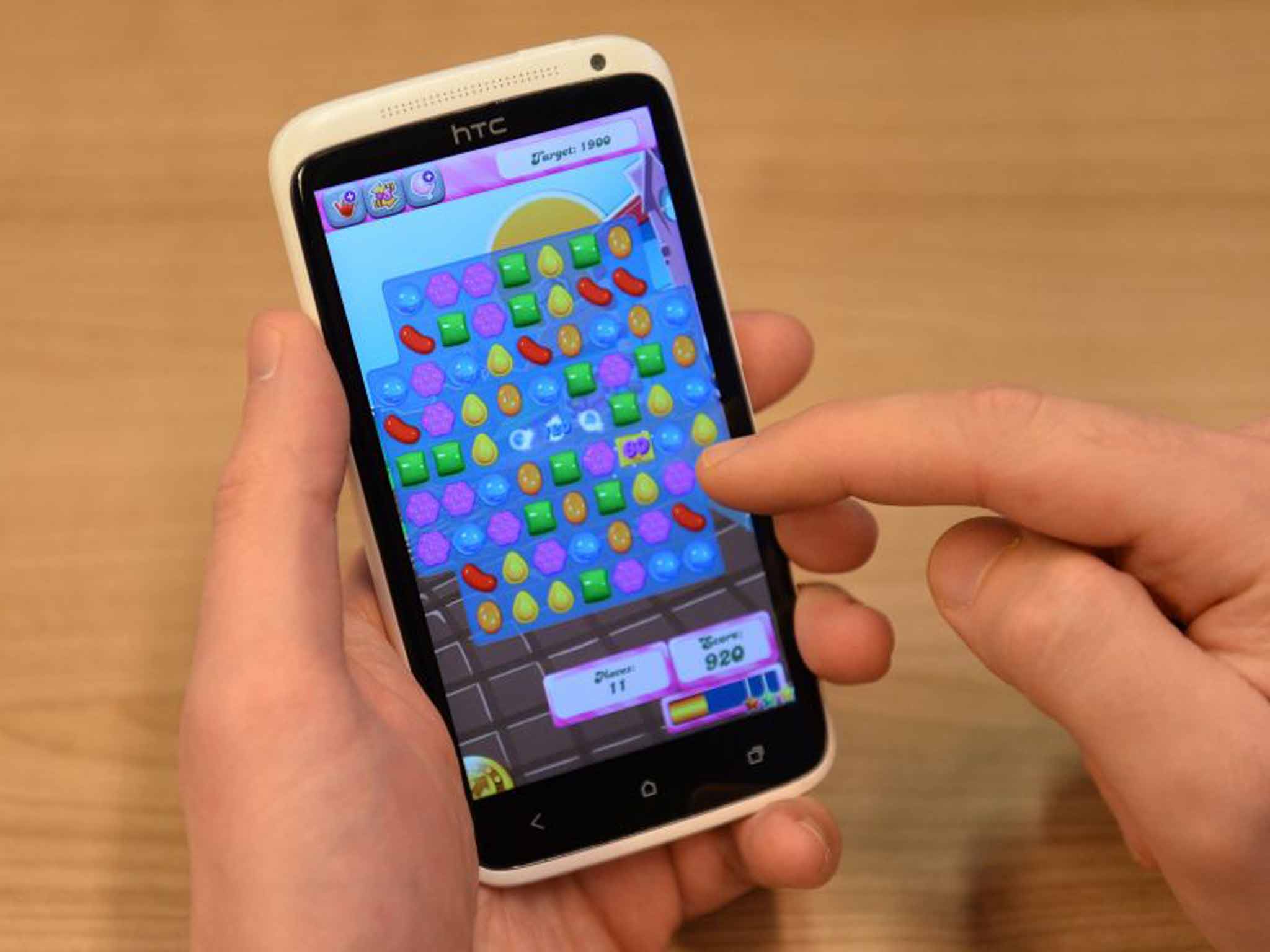Candy Crush: The wrong kind of technology at work
MP Nigel Mills has been spied playing Candy Crush Saga in Parliament. But, says Gillian Orr, he’s by no means the only one to be lured by the giddy glare while at work

It’s the game so addictive that 93 million glassy-eyed users collectively play it more than one billion times a day. And Candy Crush is also proving irresistible to those running the country, after Conservative MP Nigel Mills was snapped matching coloured candies for more than two and a half hours on his tablet during a House of Commons work and pensions committee last week.
It would appear that the heated debates couldn’t distract the MP for Amber Valley from the game, which generates £610,000 a day.
“There was a bit of the meeting that I wasn’t focusing on and I probably had a game or two,” said Mills. “I shouldn’t do it but if you check the meeting, I would say I was fully engaged in asking questions that I thought were particularly important in how we get the pensions issue right. I shall try not to do it in future.”
Perhaps it’s not surprising that he sneaked in a session on the job. These days, UK adults, according to Ofcom, spend an average of eight hours and 41 minutes a day on devices (incidentally the average night’s sleep is 20 minutes less than that).
Mills is also far from the first person whose inappropriate attachment to technology during working hours has left them red-faced.

US Senator John McCain was caught playing online poker on his iPhone during a Senate hearing about Syria in 2013. Rather than issuing an earnest apology he later tweeted, “Scandal!... worst of all I lost!”
A photograph of an office worker in Brisbane, Australia, watching pornography at his desk went viral last year. Unfortunately for the hot-blooded employee, his screen faced a window and he was snapped from another building across the street.
In fact German sex therapist Dr Christoph Ahlers has claimed that of the 60 million daily views on the world’s most popular free porn website, two thirds of people were logging on from their desks. The EDM star Zedd admitted in an interview in August that he indulges in games of solitaire while manning the decks.
“I tour so much and play a show almost every night so sometimes you can get a bit bored with DJing or the crowd can be a bit crap,” Zedd told Pulse Radio. “On nights like that, there’s nothing more enjoyable than cracking open a bit of solitaire or, to a lesser extent, Minesweeper.” He later insisted that “all DJs do it”.
So are we incapable of putting away technology at work now? Chartered occupational psychologist Alison Price believes that it’s harder than ever to put down tablets.
“I think it has always been possible to be distracted at work and you have to think about why people are being distracted,” says Price. “One of the reasons might be to regulate their mood, so for example if they’re bored. People have always been bored and people will always be bored; the question is, has the ability to be interrupted become more frequent? There are BBC news alerts on your phone, text messages, Facebook updates. People tend to bring their personal lives to work now.”
If you really want to while away the hours on the job without getting caught, there are solutions. Cost Cutter is an online game that requires users to match blocks of the same colour on a chart. For anyone who happens to glance at the computer screen, it will just look like they are working on a boring old report. Excel Sheep looks like a classic spreadsheet but really users are herding sheep into pens (no one said these games were thrilling, OK?)
And for workers who can more often be found using Word (hi boss!), there’s Breakdown, a game where the aim is to remove text from a page by using a tiny ball and racket that is cleverly disguised as a scrollbar.
Nigel Mills might like to check them out for the next time he finds himself in a three-hour meeting about pension reform.
Join our commenting forum
Join thought-provoking conversations, follow other Independent readers and see their replies
Comments